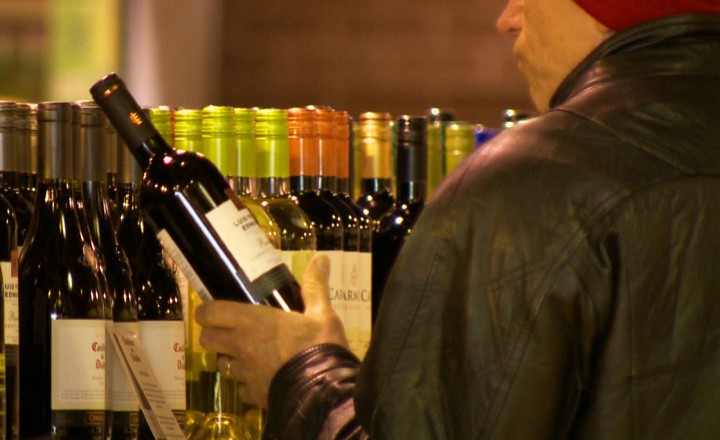OTTAWA – The Canada-Europe trade talks may be stalled on a number of controversial topics, but in one area — wines and spirits — there’s been plenty of cheer going around.

Sources close to the trade negotiations in Brussels say the two sides have had a relatively easy time settling on rules governing wines and spirits, although European vintners likely still view wine producers in Ontario and British Columbia as receiving preferential treatment.
That hasn’t prevented foreign wines from maintaining a dominant foothold on the Canadian market, however. Statistics Canada figures show imported wines made up about two-thirds of the $6.5-billion dollar market in the past year.
And European dominance isn’t likely jeopardized by anything in the deal, given that the agreement so far in the sector either keeps the status quo or gives a minor nod to European concerns.
Read more: No timeline on free-trade talks with EU, says Harper
One change, which could theoretically result in lower prices on more expensive brands of wine and liquor, involves a technical change to the way Canada applies duties on imports from Europe.
Ontario and British Columbia have also agreed to freeze licences on independently operated stores that sell products that are made in their respective provinces.
- Trudeau says ‘good luck’ to Saskatchewan premier in carbon price spat
- Canadians more likely to eat food past best-before date. What are the risks?
- Hundreds mourn 16-year-old Halifax homicide victim: ‘The youth are feeling it’
- On the ‘frontline’: Toronto-area residents hiring security firms to fight auto theft
As well, provincial liquor boards will be limited in the activities they can engage in beyond their provincial boundaries.
“None of those things are significant issues for Canadian consumers,” said C. J. Helie, the executive vice-president of the Association of Canadian Distillers.
“There’s some benefits in the deal, in terms of increased transparency and making sure the rules are clear for everybody.”
Europe requested a change in the way duties are applied, sources say, because exporters believe they have not always been consistently applied. As a result, Europe has asked that the value-added tax be applied on volumes of imports, rather than on the value.
“The change is supposed to be revenue neutral overall, but it favours premium products,” said Helie. “If you add a six per cent tax on a bottle that sells for $100, it is much more than on a bottle that sells for $20.”
It is not clear whether European producers of premium alcoholic beverages will pass on any savings to consumers, however.
Helie said the issue of private stores is a sore point with the Europeans because domestic wines sold there are subject to a very low tax — none in B.C., and about six per cent in Ontario. By contrast, the average mark-up on wines sold at provincial liquor board outlets can range between 65 and 85 per cent, he said.
“It’s a huge tax break for the (provincial) vintners, which is the real reason why the U.S. and the EU have concerns,” he said. “It’s not so much an issue of retail access, it’s that you are putting so much money into the jeans of these companies that they can use it to compete with foreign vintners.”
But in essence, it cements the status quo, he said. Licences have been frozen for years under the Canada-U.S. free trade deal and NAFTA.
Still, there is no roll-back planned for the number of privately run stores in either province.
The agreement on wine and spirits is dependent on the two sides coming to an understanding on all agricultural items — and there the two sides still remain far apart.
Canada is insisting that it get significant access to the European market for beef and pork, but producers in Ireland and France fear such a concession will have serious repercussions on their domestic producers, particularly since the U.S. is likely to insist on additional quota during its negotiations with the European Union.
As well, the two sides have yet to sign off on a number of other key sectors, including local preference levels for bidding on urban transit contracts.
But sources say the two sides have made progress in recent weeks on giving European suppliers greater access to Canada’s hydro-electric sector, including opening up about 35 per cent of Hydro-Quebec contracts, currently valued at $390 million, to EU suppliers.
As well, Canada has agreed to raise the threshold for automatic review on foreign takeovers to $1.5 billion from $1 billion.
Analysts have speculated that with Europe preparing to launch talks with the United States, a bigger and more lucrative market, Canada risks being left on the sidelines if it does not conclude an agreement in the next several weeks.
During a news conference in London, Prime Minister Stephen Harper called the talks “the biggest trade negotiations Canada has ever had in its history,” but said there is no deadline for reaching an agreement.
“We will not arrive at an accord until such time as we think we have the best accord we can get for the Canadian people,” Harper said.
“That will be what drives us — the contents, not some artificial timeline.”


Comments